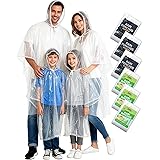Know Your Risks
Understanding Earthquake Zones
First things first, it’s crucial to know whether you live in an earthquake-prone area. There are specific regions where tectonic plates cause seismic activities pretty regularly. I’ve lived in a few places where shaking is just part of the norm, and it’s always unnerving without the right knowledge. Research your area’s history with earthquakes and get familiar with the local geology.
Take time to review state or local government resources that map out seismic zones. This can help you gauge the likelihood of an earthquake in your area. The Federal Emergency Management Agency (FEMA) also provides guidelines and maps specific to earthquake risks. It’s good to equip yourself with all this info, trust me!
Sometimes, knowing your risk can save you from being caught off guard. You can even talk to neighbors or community members who have experienced earthquakes. Their stories can provide insight into what to expect and prepare for. Better to be informed than blindsided by the ground shaking unexpectedly!
Create a Preparedness Plan
Family Communication Strategy
One thing I’ve learned when planning for emergencies is that communication is key. You and your family should create a clear communication plan. Decide on a meeting spot that’s safe and easy to find in case you’re separated during an earthquake. It’s a little detail, but it can make a huge difference.
Next, ensure everyone knows important numbers, especially contacts outside of your local area. After an earthquake, regular phone lines may be down, but texting often still works. It’s something I always stress: keep a list of these contacts handy, maybe even in a wallet or on the fridge.
Lastly, practice your plan together. Go over it a few times a year so it becomes second nature when the shaking starts. Kids, in particular, need this kind of repetition. It also sparks an opportunity to teach them what to do when the ground is quaking. Plus, turned into a fun drill, it lightens the mood when discussing something as serious as earthquakes!
Assemble an Earthquake Kit
Essential Supplies
When it comes to putting together an emergency kit, I always think about what I would want and need in a crisis. Your earthquake kit should include essentials like water, non-perishable food, a flashlight, batteries, and first-aid supplies. It’s surprising how many people forget about basics like water; it’s a game changer!
Also, throw in a whistle to signal for help, along with dust masks to help filter contaminated air. I even keep a manual can opener in mine—you don’t want to be stuck without a way to access your food. And don’t forget items like cash, as credit card systems may fail during a disaster. My advice is to periodically check and refresh your kit, especially food and medicine that expires.
== > What if ... Get a FREE Subscription to PREPARE
Finally, add personal items like medications, glasses, and important documents (birth certificates, insurance policies). Keeping these in a waterproof bag is crucial. I can’t tell you how many times I’ve looked for these things after other emergencies and fell flat. Having everything organized will save you loads of stress should the big one hit.
Practice Safety Drills
Drop, Cover, and Hold On!
I’ve always believed that practice makes perfect, especially in a potentially dangerous situation like an earthquake. The “Drop, Cover, and Hold On” technique is critical. When an earthquake happens, you want to safely drop to your hands and knees—don’t try to run when the floor shakes!
Get Preparedness and Self-Reliance Tips. Subscribe Now!
After you’ve dropped, cover your head and neck with your arms, or find a sturdy piece of furniture to get under. I can’t stress enough how important it is to protect your head—seriously! Hold on until the shaking stops. This practice not only helps you remember what to do but also builds confidence, which can be invaluable in an emergency.
Having family drills at least once a year can also help everyone feel more secure. I’ve found that incorporating some fun, like simulating the shaking, helps ease nerves for the kids. This way, it feels less like a scary conversation and more like preparedness teamwork. Plus, you’ll be better prepared together when the real deal happens!
Stay Informed and Alert
Utilize Technology and Local Resources
In this digital age, staying informed about potential earthquakes is easier than ever. Sign up for local alerts and apps that provide real-time updates. I use a couple of apps that give me early warnings and even tips right when I need them. It’s a game-changer when it comes to being prepared for an earthquake.
Another great resource is to follow local news channels on social media. They often post timely information and updates that can help you gauge what’s happening in your region. I usually check my news feed for any potential alerts, especially when I hear rumblings about tectonic activity.
Finally, participate in community meetings that discuss disaster preparedness. These sessions can be incredibly informative and provide great local insights about what to do before, during, and after an earthquake. Sharing knowledge with others also helps develop a community bond—a huge benefit when disaster strikes.
FAQ
1. What should I include in my earthquake kit?
Your earthquake kit should include water, non-perishable food, a flashlight, batteries, first-aid supplies, cash, medications, and essential documents. Don’t forget items like a manual can opener and dust masks!
2. How can I communicate with my family during an earthquake?
Establish a communication plan with your family, including a designated meeting spot and a list of important contacts. Make sure everyone knows these details and practices them periodically.
3. What is the “Drop, Cover, and Hold On” drill?
This technique is recommended during an earthquake. Drop down to your hands and knees, cover your head and neck, and hold on until the shaking stops. It’s a simple yet effective way to protect yourself from falling debris.
4. How can I stay updated on earthquake risks in my area?
Sign up for local alerts, download earthquake apps, and follow local news channels on social media to stay informed about potential earthquake risks and updates.
5. Why is it important to know my area’s earthquake risk?
Understanding the earthquake risk in your area helps you prepare adequately and mitigates the chances of being caught unprepared. Knowledge is key when it comes to safety!






